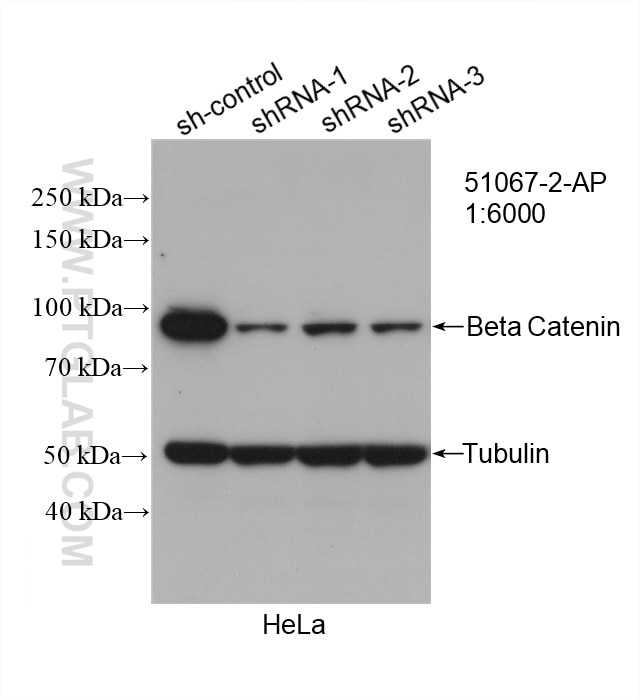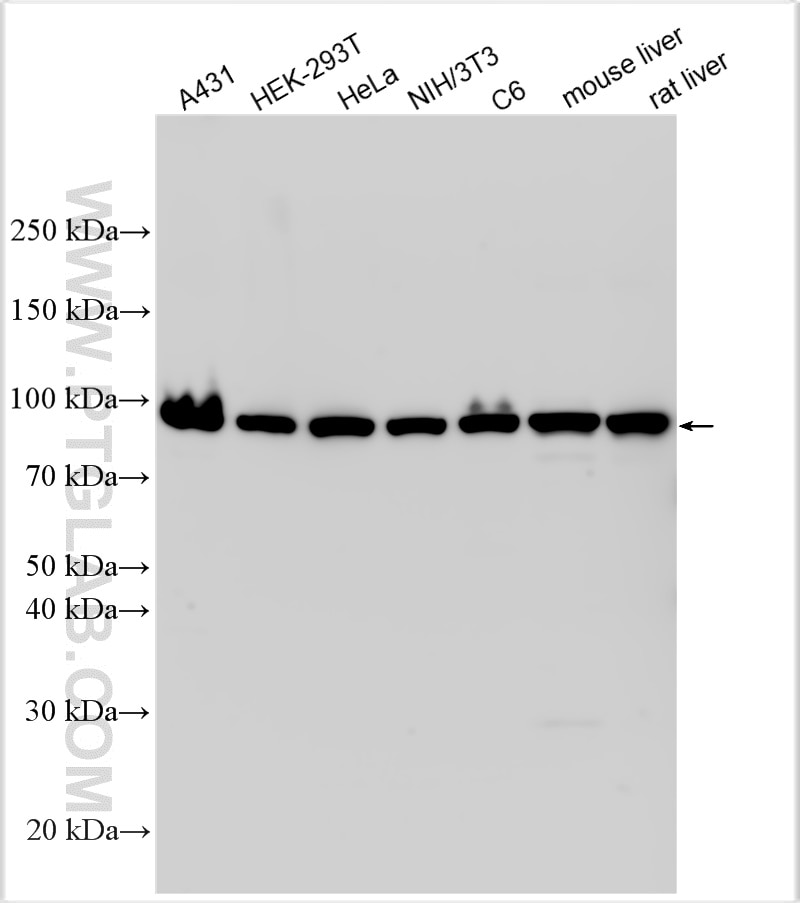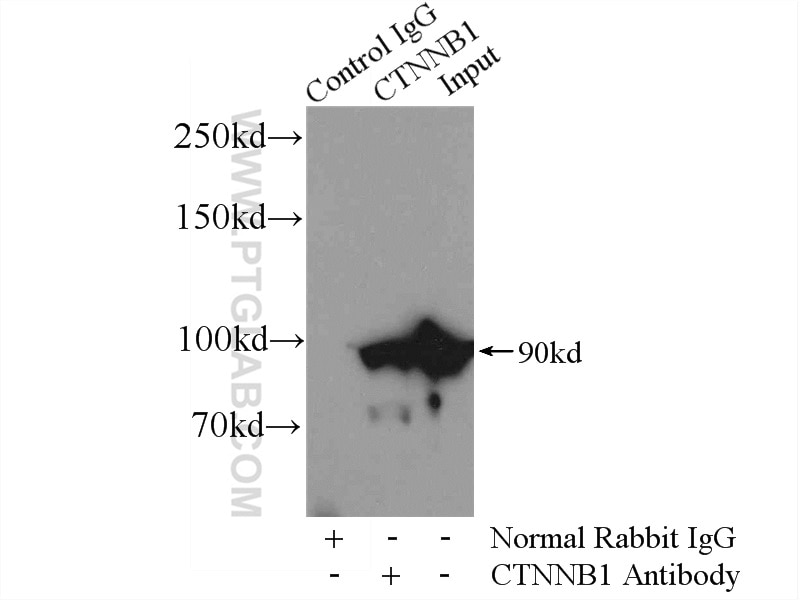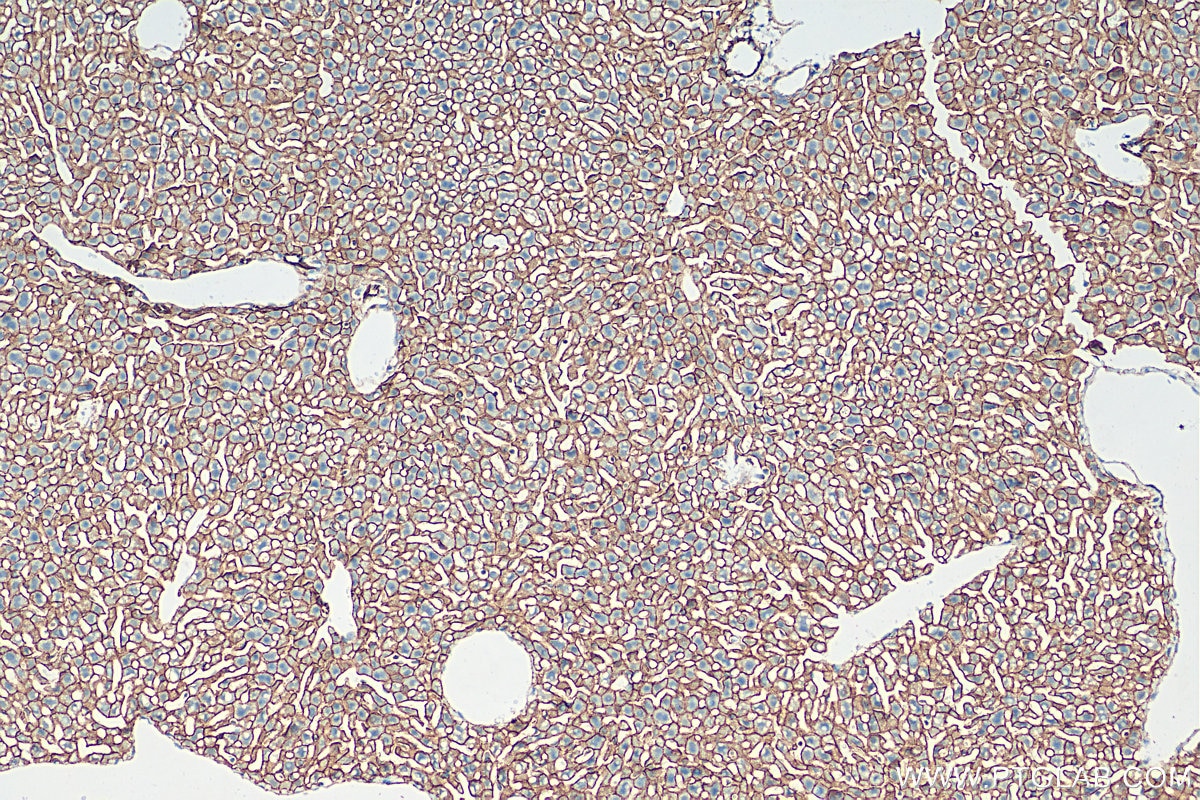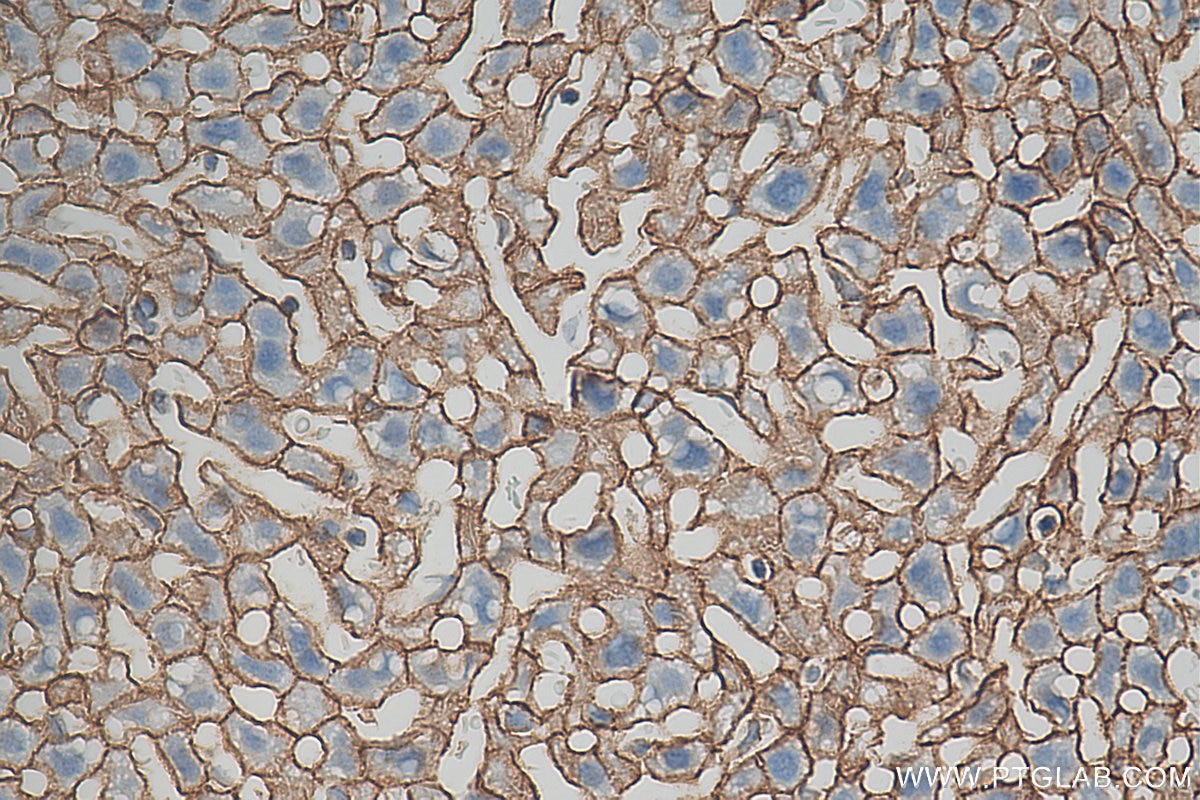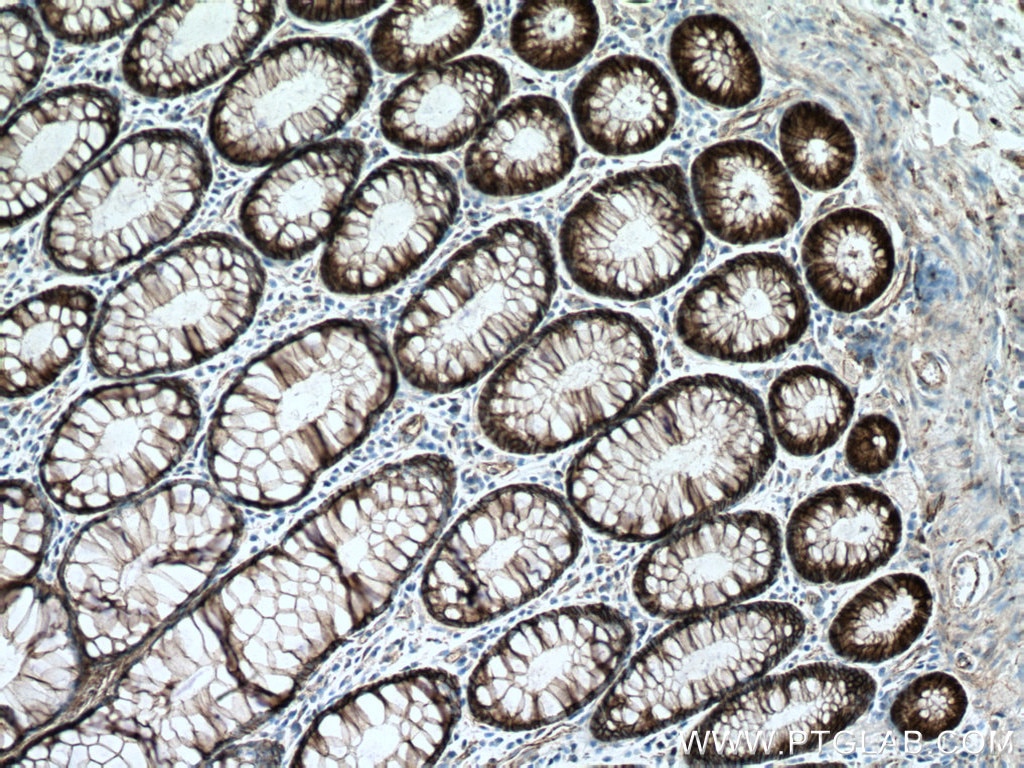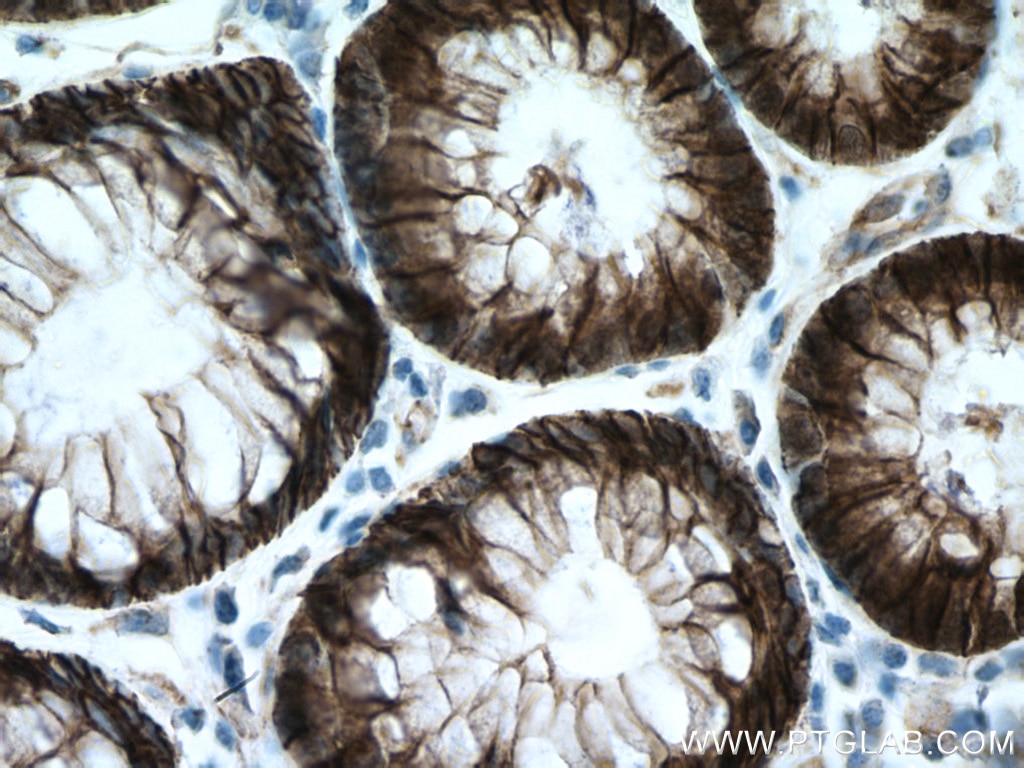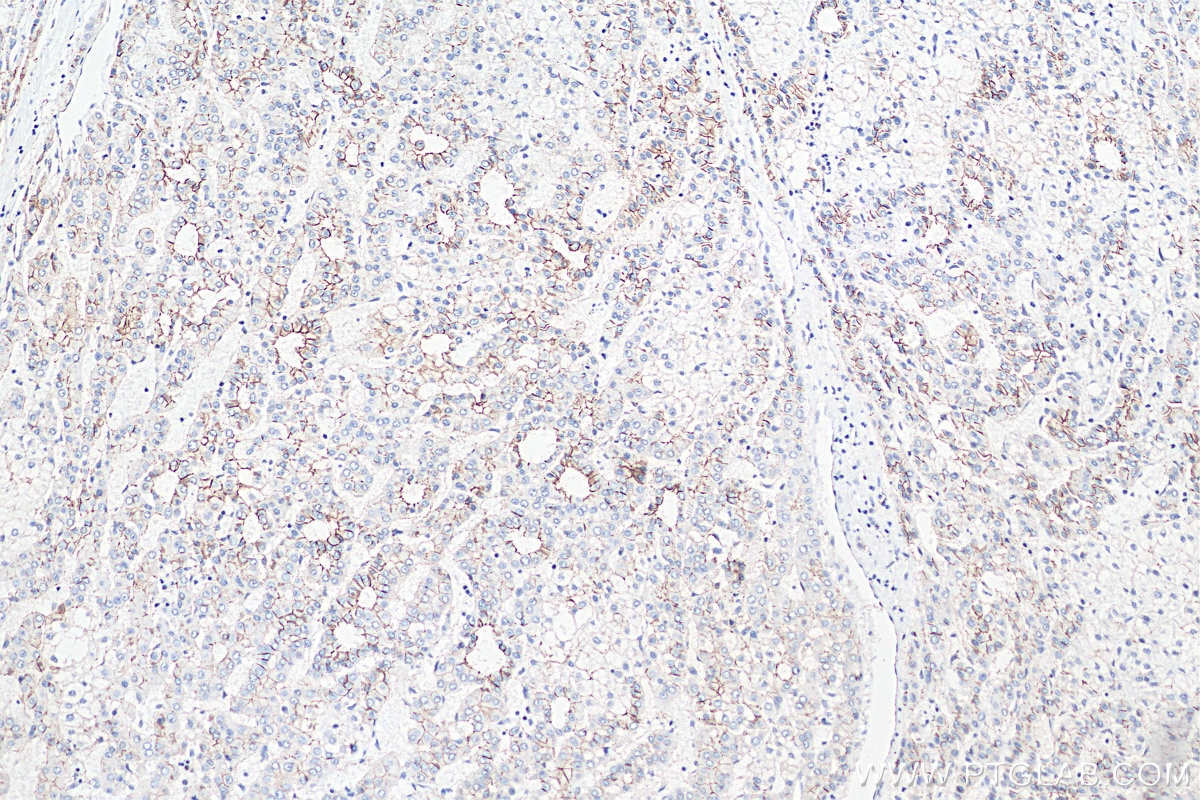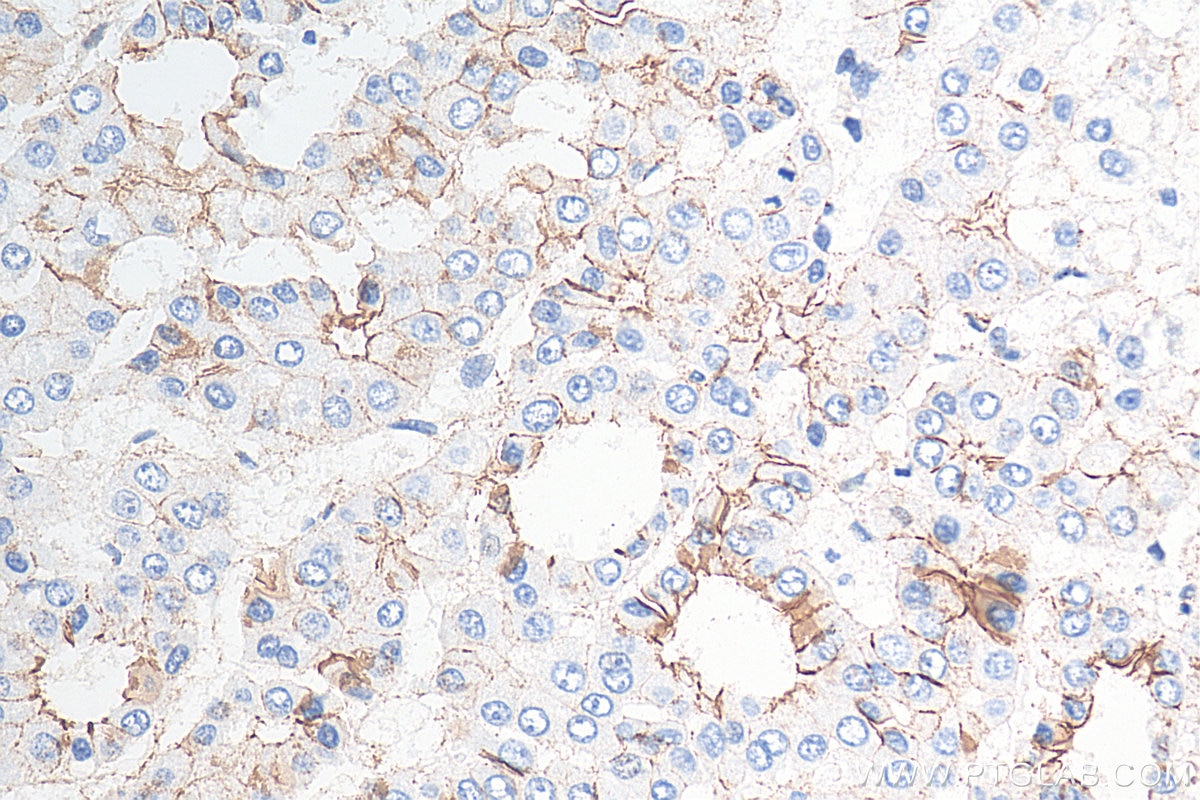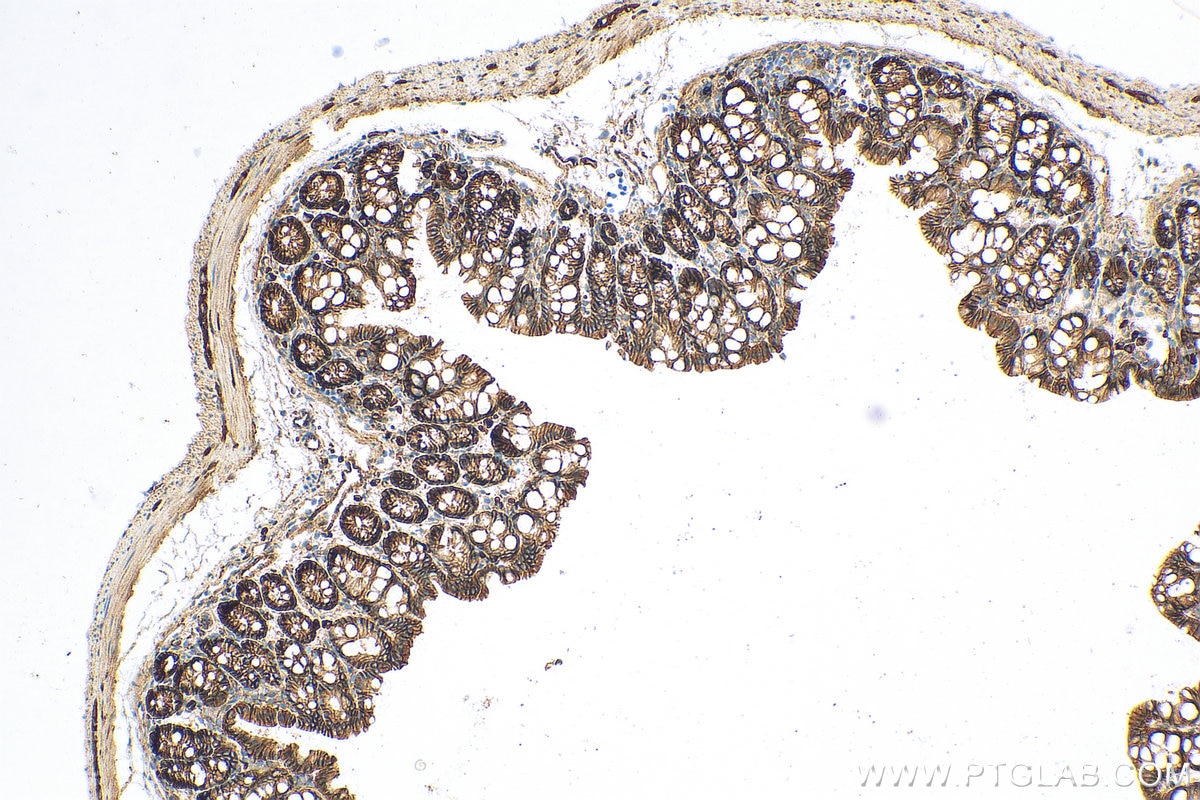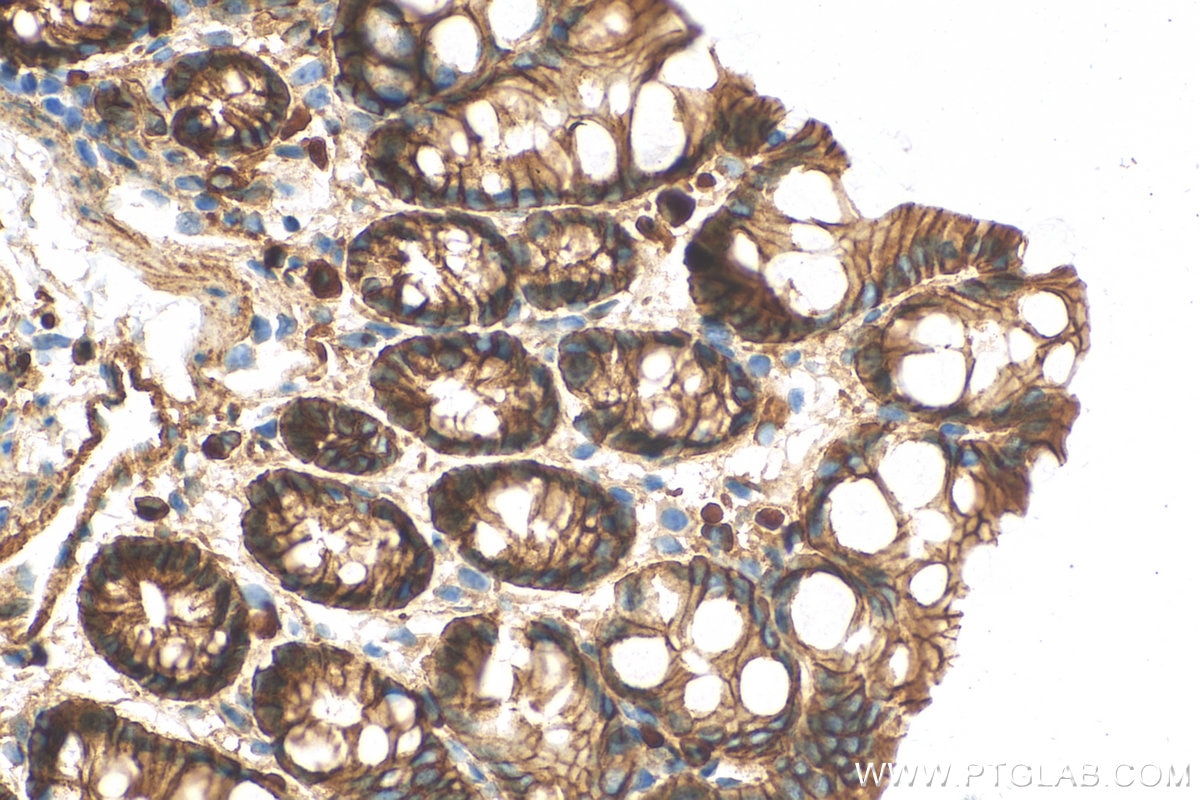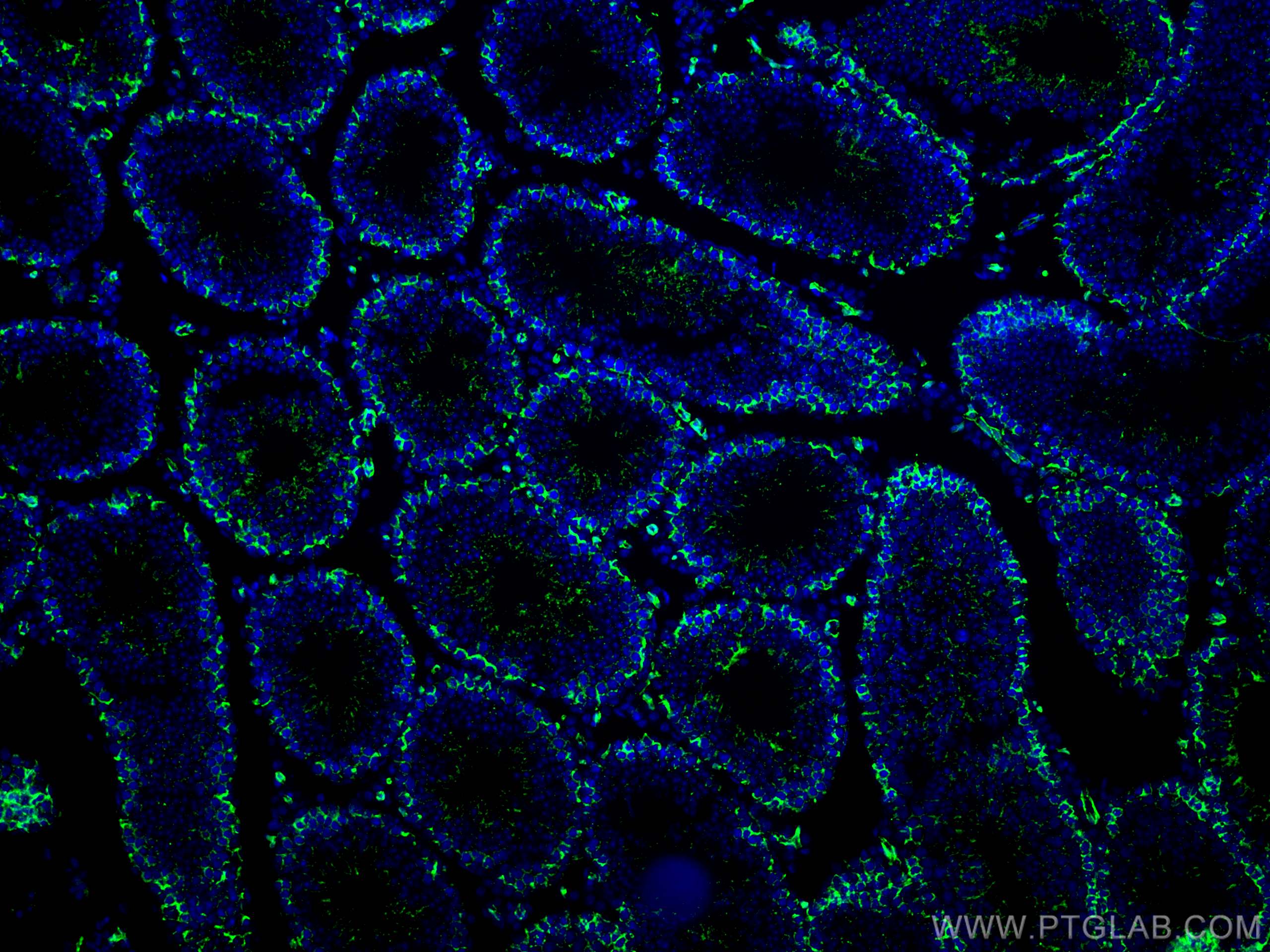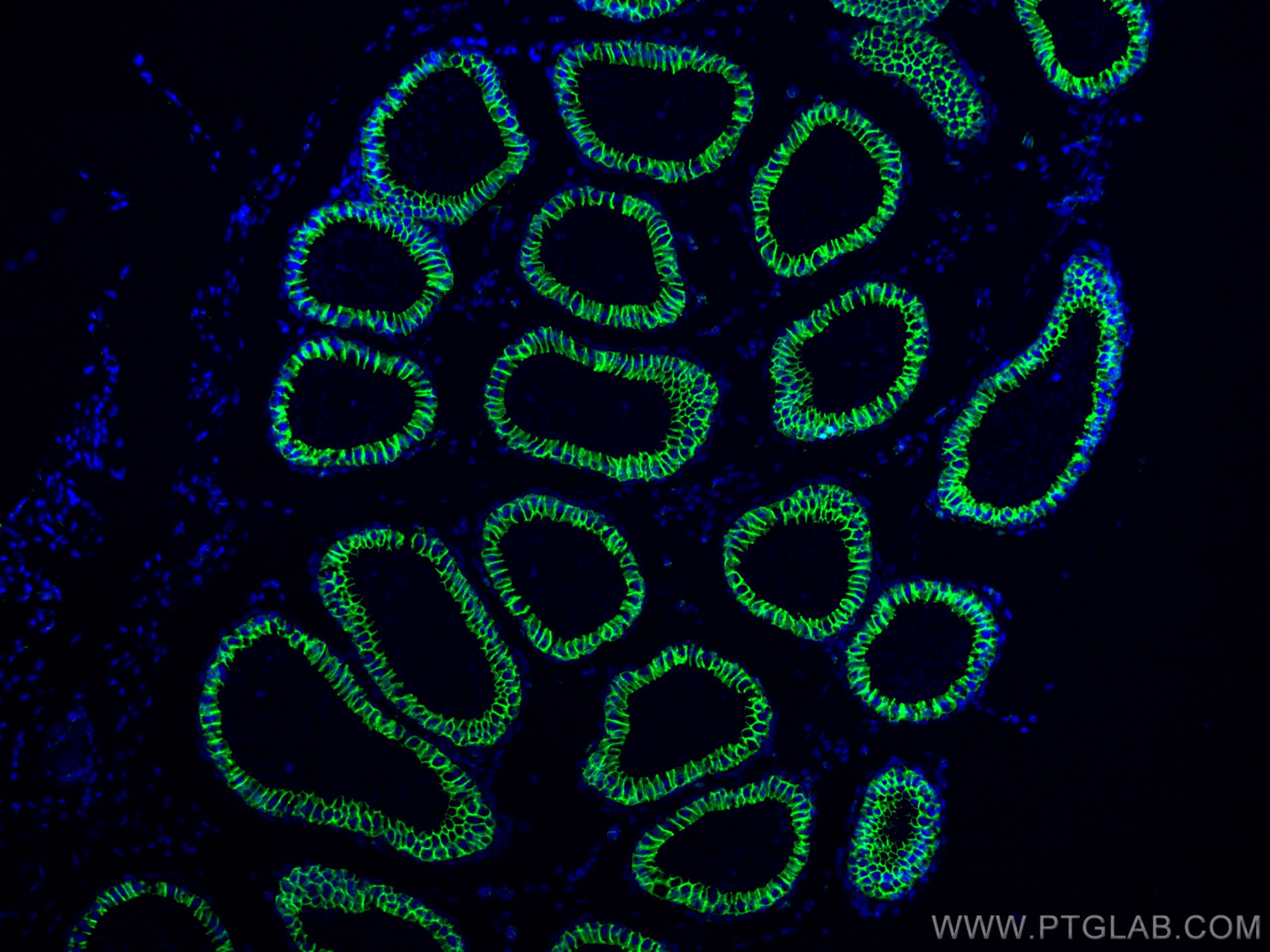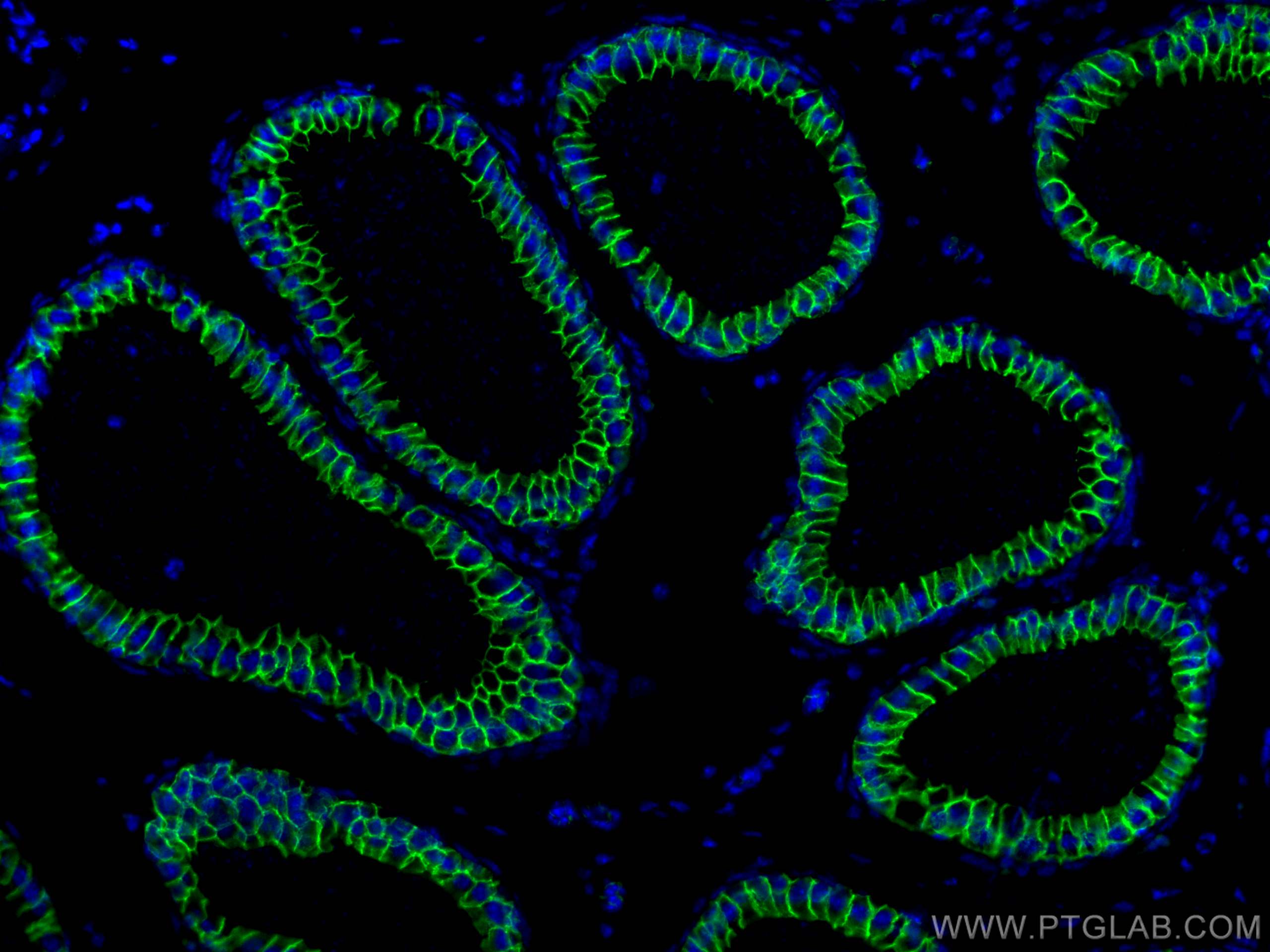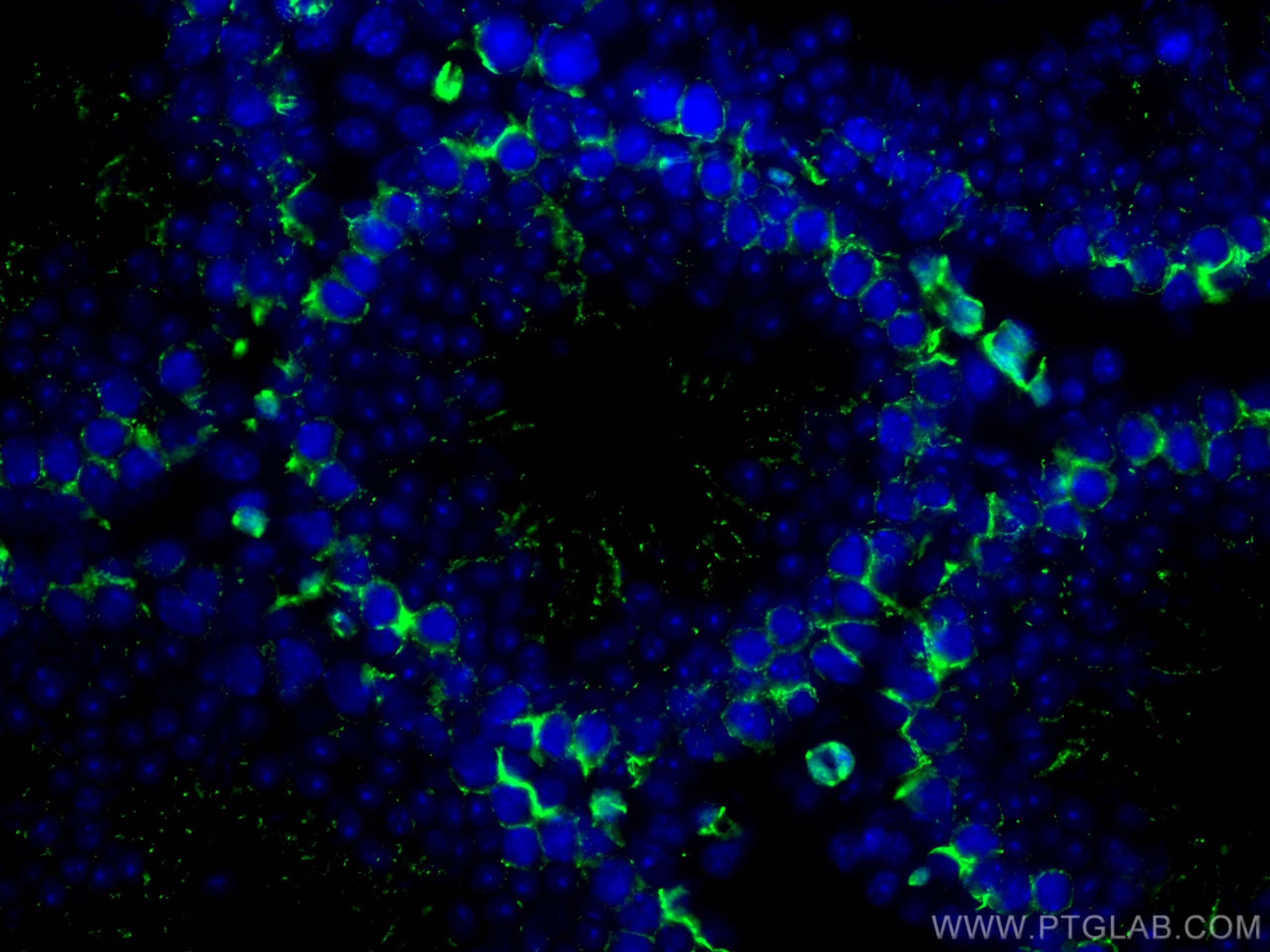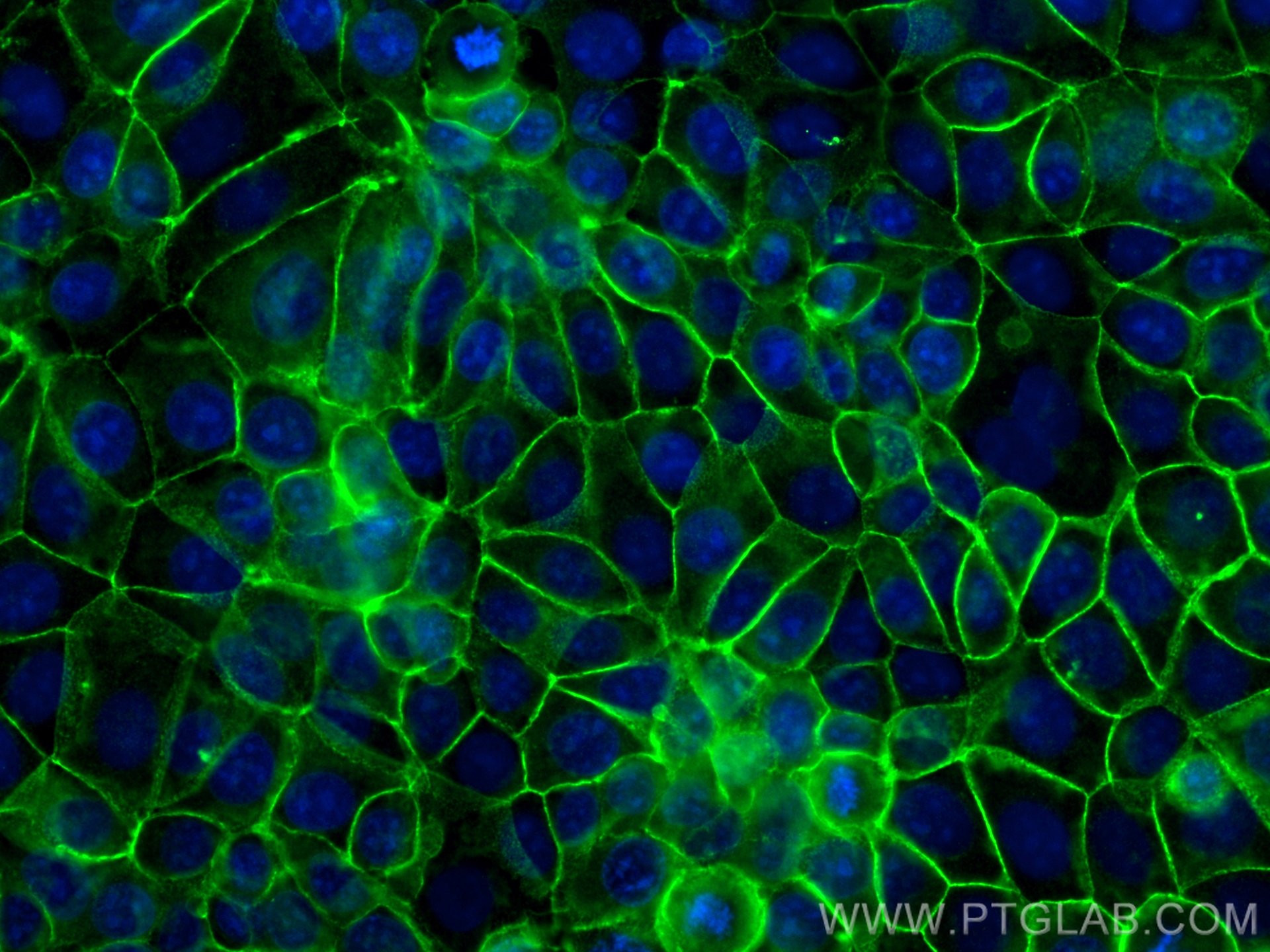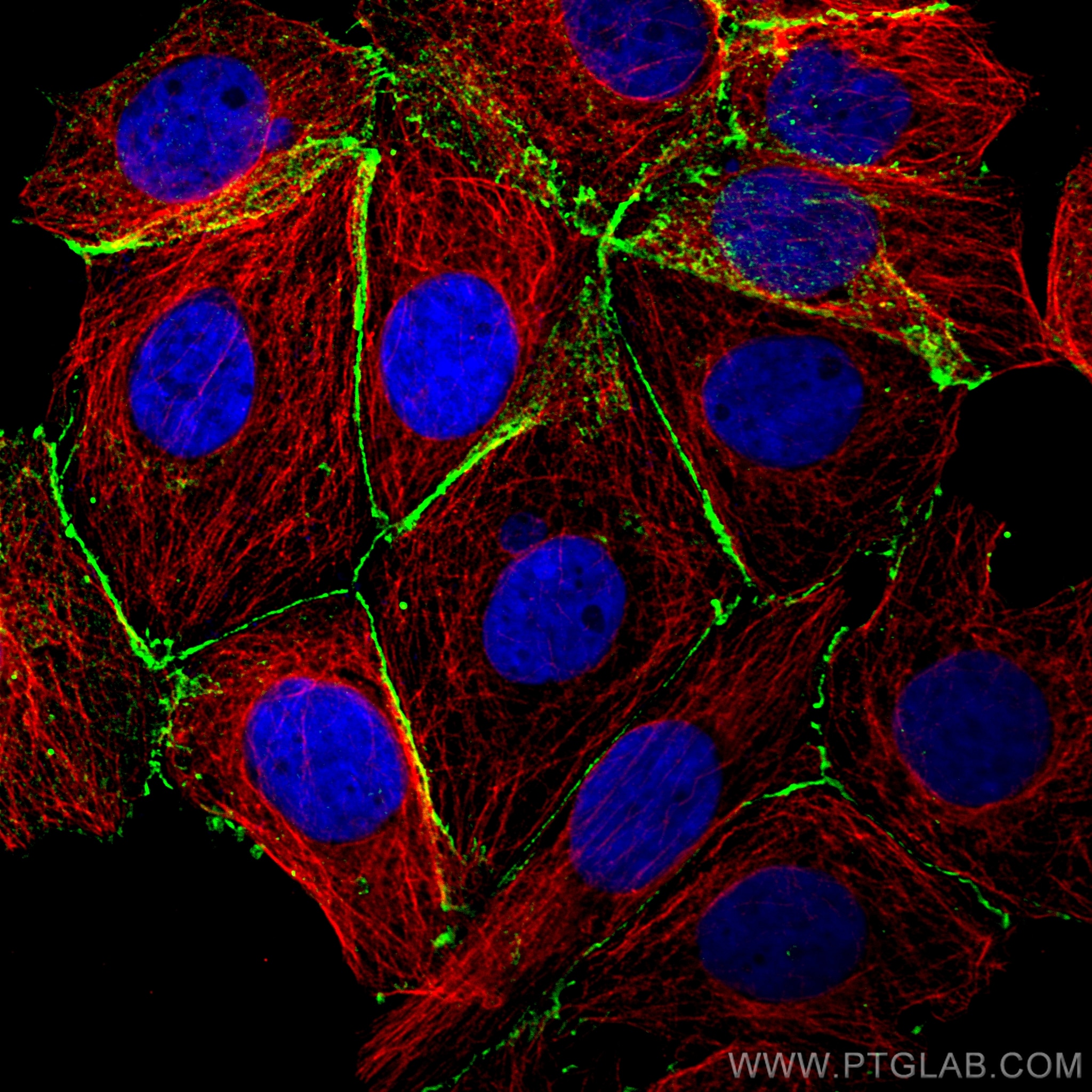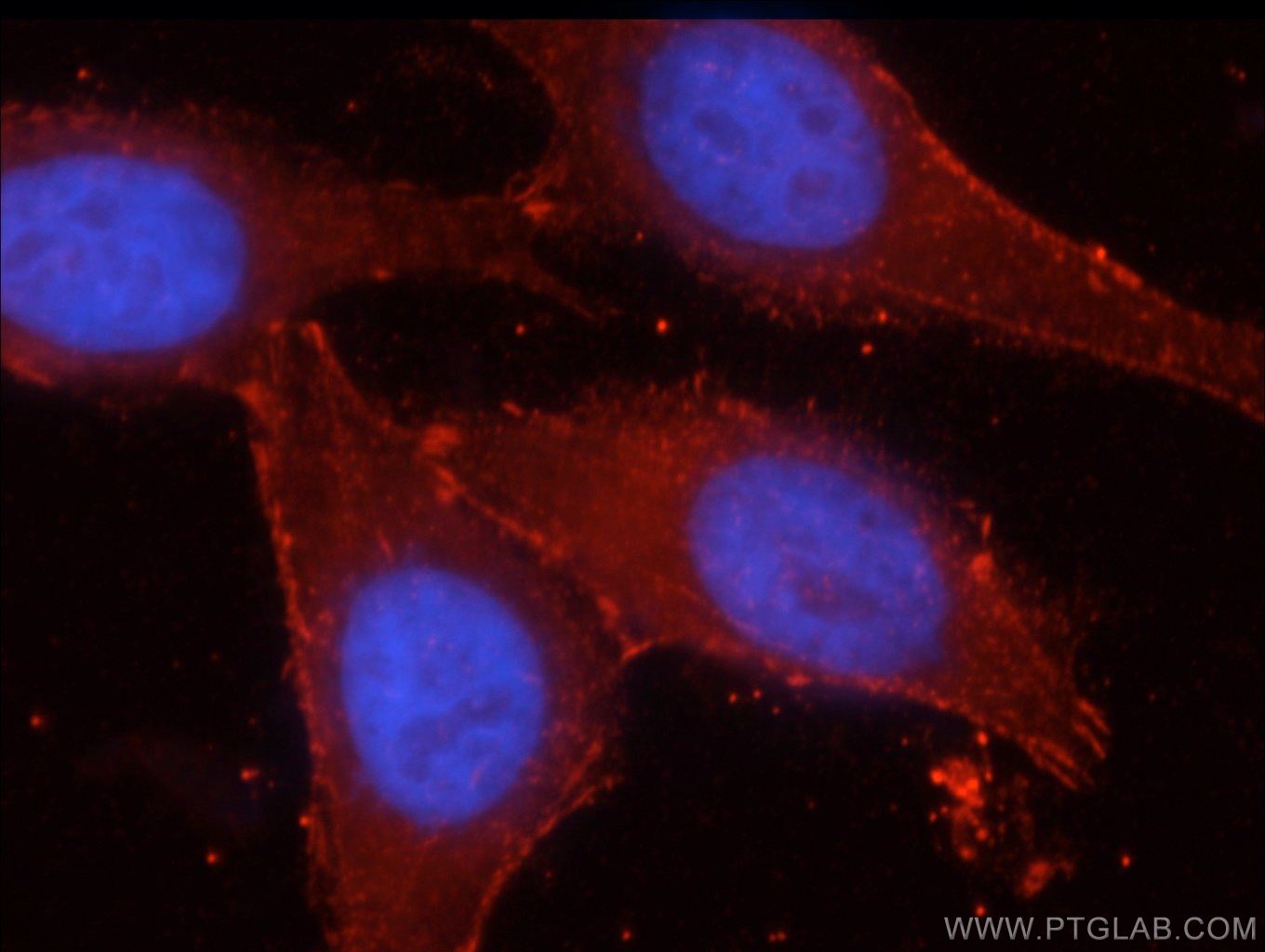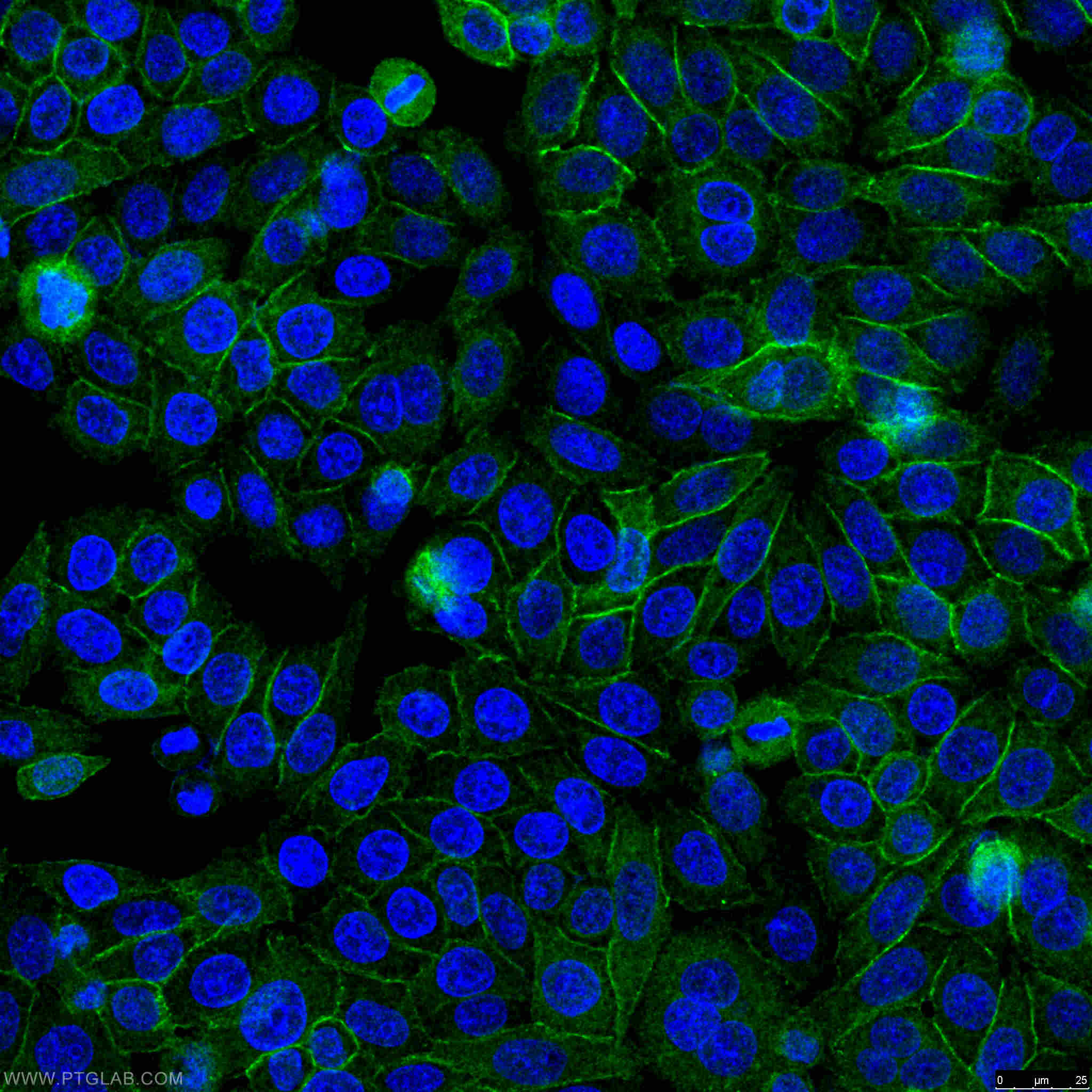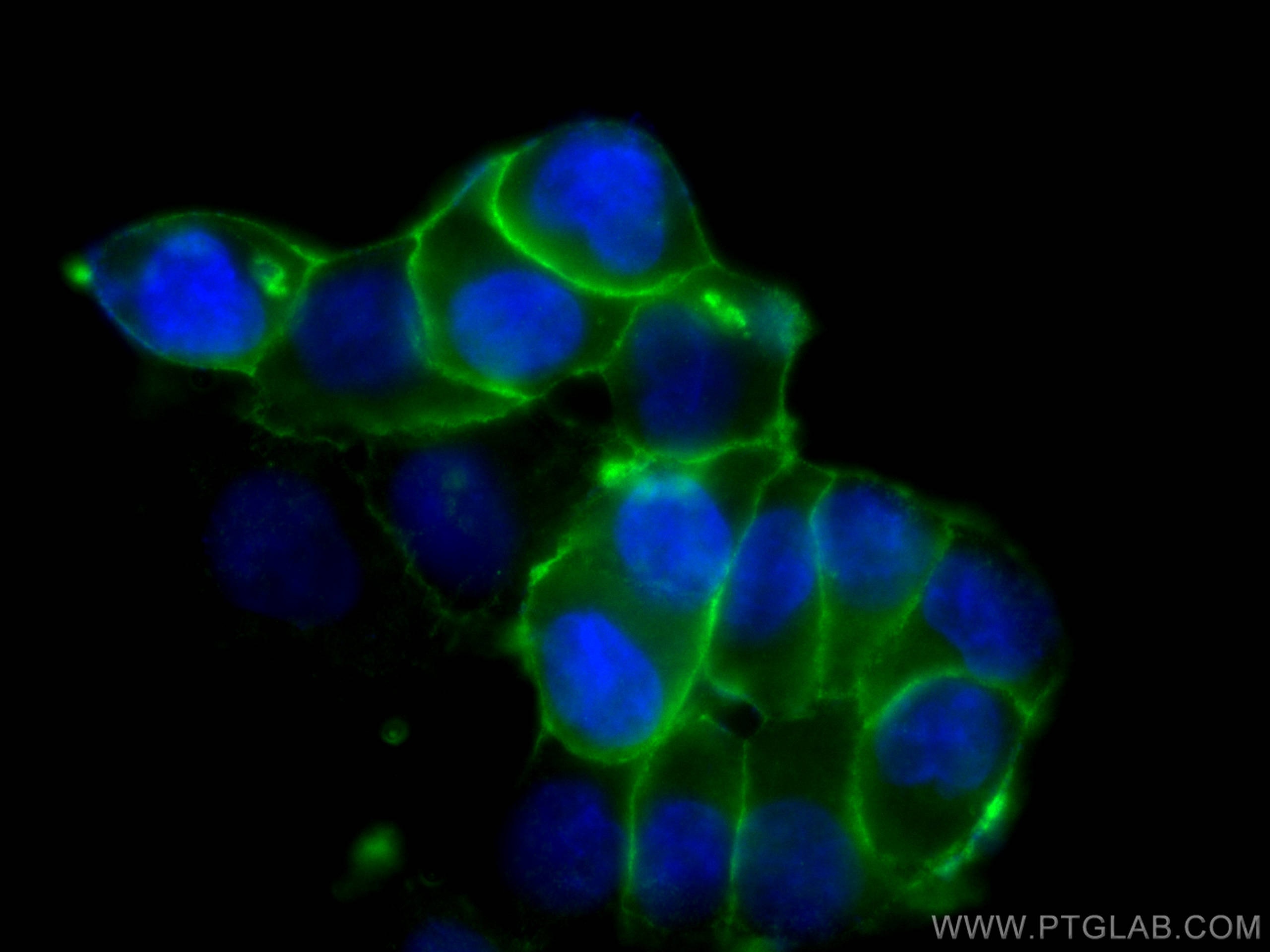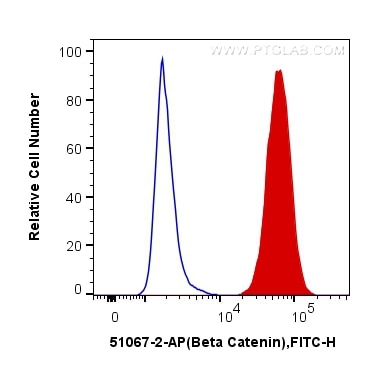- Featured Product
- KD/KO Validated
Beta Catenin Polyklonaler Antikörper
Beta Catenin Polyklonal Antikörper für WB, IHC, IF/ICC, IF-P, FC (Intra), IP, ELISA
Wirt / Isotyp
Kaninchen / IgG
Getestete Reaktivität
Hausschwein, human, Maus, Ratte und mehr (5)
Anwendung
WB, IHC, IF/ICC, IF-P, FC (Intra), IP, CoIP, ChIP, ELISA
Konjugation
Unkonjugiert
Kat-Nr. : 51067-2-AP
Synonyme
Geprüfte Anwendungen
| Erfolgreiche Detektion in WB | A431-Zellen, C6-Zellen, HEK-293T-Zellen, HeLa-Zellen, Mauslebergewebe, NIH/3T3-Zellen, Rattenlebergewebe |
| Erfolgreiche IP | Mauslebergewebe |
| Erfolgreiche Detektion in IHC | Mauslebergewebe, humanes Kolonkarzinomgewebe, humanes Leberkarzinomgewebe, Maus-Kolongewebe Hinweis: Antigendemaskierung mit TE-Puffer pH 9,0 empfohlen. (*) Wahlweise kann die Antigendemaskierung auch mit Citratpuffer pH 6,0 erfolgen. |
| Erfolgreiche Detektion in IF-P | Maushodengewebe, mouse epididymis tissue |
| Erfolgreiche Detektion in IF/ICC | MCF-7-Zellen, HeLa-Zellen, HepG2-Zellen, Maushodengewebe, T-47D-Zellen |
| Erfolgreiche Detektion in FC (Intra) | MCF-7-Zellen |
Empfohlene Verdünnung
| Anwendung | Verdünnung |
|---|---|
| Western Blot (WB) | WB : 1:5000-1:50000 |
| Immunpräzipitation (IP) | IP : 0.5-4.0 ug for 1.0-3.0 mg of total protein lysate |
| Immunhistochemie (IHC) | IHC : 1:1000-1:4000 |
| Immunfluoreszenz (IF)-P | IF-P : 1:500-1:2000 |
| Immunfluoreszenz (IF)/ICC | IF/ICC : 1:50-1:500 |
| Durchflusszytometrie (FC) (INTRA) | FC (INTRA) : 0.20 ug per 10^6 cells in a 100 µl suspension |
| It is recommended that this reagent should be titrated in each testing system to obtain optimal results. | |
| Sample-dependent, check data in validation data gallery | |
Veröffentlichte Anwendungen
| KD/KO | See 15 publications below |
| WB | See 850 publications below |
| IHC | See 131 publications below |
| IF | See 206 publications below |
| IP | See 14 publications below |
| CoIP | See 18 publications below |
| ChIP | See 6 publications below |
Produktinformation
51067-2-AP bindet in WB, IHC, IF/ICC, IF-P, FC (Intra), IP, CoIP, ChIP, ELISA Beta Catenin und zeigt Reaktivität mit Hausschwein, human, Maus, Ratten
| Getestete Reaktivität | Hausschwein, human, Maus, Ratte |
| In Publikationen genannte Reaktivität | human, hamster, Hausschwein, Huhn, Hund, Maus, Ratte, Rind, Ziege |
| Wirt / Isotyp | Kaninchen / IgG |
| Klonalität | Polyklonal |
| Typ | Antikörper |
| Immunogen | Peptid |
| Vollständiger Name | catenin (cadherin-associated protein), beta 1, 88kDa |
| Berechnetes Molekulargewicht | 781 aa, 86 kDa |
| Beobachtetes Molekulargewicht | 92 kDa |
| GenBank-Zugangsnummer | BC058926 |
| Gene symbol | Beta Catenin |
| Gene ID (NCBI) | 1499 |
| Konjugation | Unkonjugiert |
| Form | Liquid |
| Reinigungsmethode | Antigen-Affinitätsreinigung |
| Lagerungspuffer | PBS with 0.02% sodium azide and 50% glycerol |
| Lagerungsbedingungen | Bei -20°C lagern. Nach dem Versand ein Jahr lang stabil Aliquotieren ist bei -20oC Lagerung nicht notwendig. 20ul Größen enthalten 0,1% BSA. |
Hintergrundinformationen
β-Catenin, also known as CTNNB1, is an evolutionarily conserved, multifunctional intracellular protein. β-Catenin is a 92-kDa protein, originally identified in cell adherens junctions (AJs) where it functions to bridge the cytoplasmic domain of cadherins to a-catenin and the actin cytoskeleton. Besides its essential role in the AJs, β-catenin is also a key downstream component of the canonical Wnt pathway that plays diverse and critical roles in embryonic development and adult tissue homeostasis. The Wnt/β-catenin pathway is also involved in the activation of other intracellular messengers such as calcium fluxes, JNK, and SRC kinases. Deregulation of β-catenin activity is associated with multiple diseases including cancers. (PMID: 22617422; 18334222)
Protokolle
| PRODUKTSPEZIFISCHE PROTOKOLLE | |
|---|---|
| WB protocol for Beta Catenin antibody 51067-2-AP | Protokoll herunterladen |
| IHC protocol for Beta Catenin antibody 51067-2-AP | Protokoll herunterladenl |
| IF protocol for Beta Catenin antibody 51067-2-AP | Protokoll herunterladen |
| IP protocol for Beta Catenin antibody 51067-2-AP | Protokoll herunterladen |
| STANDARD-PROTOKOLLE | |
|---|---|
| Klicken Sie hier, um unsere Standardprotokolle anzuzeigen |
Publikationen
| Species | Application | Title |
|---|---|---|
Cell Metab Mitochondrial Dynamics Is Critical for the Full Pluripotency and Embryonic Developmental Potential of Pluripotent Stem Cells. | ||
Hepatology Basolateral CD147 induces hepatocyte polarity loss by E-cadherin ubiquitination and degradation in hepatocellular carcinoma progress. | ||
Acta Pharm Sin B Protocatechuic aldehyde protects cardiomycoytes against ischemic injury via regulation of nuclear pyruvate kinase M2. | ||
Hepatology Long noncoding RNA DANCR increases stemness features of hepatocellular carcinoma via de-repression of CTNNB1. | ||
Rezensionen
The reviews below have been submitted by verified Proteintech customers who received an incentive for providing their feedback.
FH kis (Verified Customer) (02-21-2025) | This antibody works well for western blotting at 1:1000 dilution for WB and 1:300 for IF.
|
FH Udesh (Verified Customer) (08-16-2023) | Worked well for WB and IF
|
FH Alzbeta (Verified Customer) (03-13-2019) | This antibody was used for IF staining of beta-catenin in primary neonatal rat cardiomyocyte culture. The antibody worked well after both ice cold-methanol or 4% PFA fixation, followed by the 3%BSA block. The incubation with primary (b-catenin) and secondary antibody (aRabbit-Alexa Fluor 488 Plus) lasted 1 hr at room temperature.
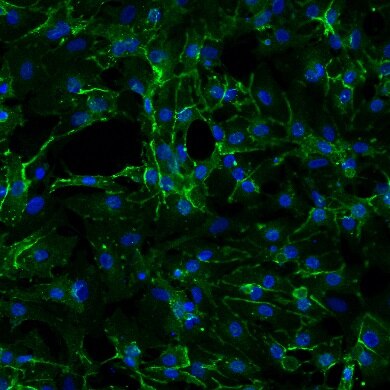 |
